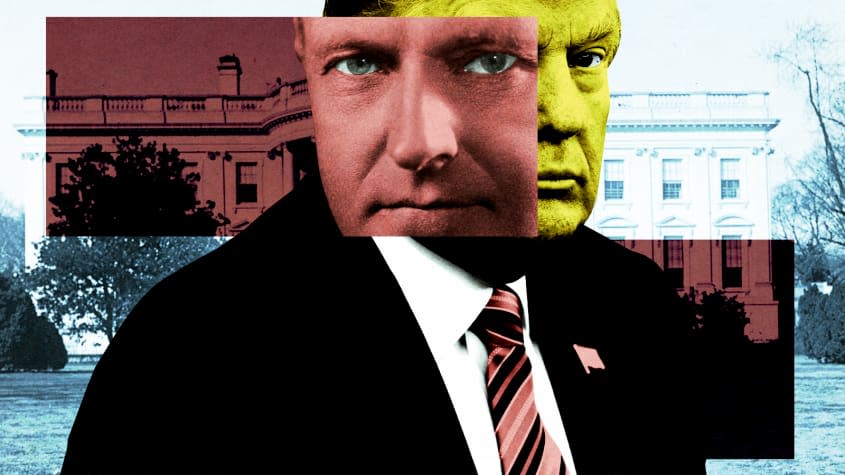The vintage GOP emerging has a much newer origin

- Oops!Something went wrong.Please try again later.
- Oops!Something went wrong.Please try again later.
In a Wall Street Journal excerpt of his forthcoming book, the American Enterprise Institute's Matthew Continetti makes the case that the conservatism of today bears a striking resemblance to the right of 100 years ago, even if few people would mistake Donald Trump for Calvin Coolidge. Even post-Twitter ban, "Silent" Trump is not.
"Both [Coolidge and Trump] supported restricting immigration into the United States. Both wanted to protect American industry from foreign competition. Both sought to avoid overseas entanglements," Contintetti writes. This is true, as is much of his account of why that older conservatism previously fell out of favor.
But it is also conspicuously missing out on why some elements of this conservatism have come roaring back to life. The word "Iraq" appears nowhere in this piece. We fast forward from the bombing of Pearl Harbor — which "discredited the right's noninterventionist foreign policy" — to the defeat of Trump in the 2020 presidential election, when "the right has been driven from power at the federal level."
Yet Republicans' only popular vote win since 1988 was the 51 percent George W. Bush garnered as an incumbent in 2004, when a critical mass of the country still believed that neoconservatives had the answer for the attacks on America that took place on 9/11. Unlike the U.S. victory in World War II that came a few years after Pearl Harbor, that belief was one of the many casualties of the Iraq War. The Afghanistan War went on five times as long as U.S. participation in the Second World War and ended with a result far more ambiguous than the defeat of Nazi Germany and Imperial Japan.
Bush left the White House with a sub-Trump approval rating in the 20s as the bipartisan establishment had no answers for the financial meltdown, the rise of China, or the disappearance of jobs from the heartland, either. After the 1986 amnesty signed by Ronald Reagan conspicuously failed to curtail illegal immigration, their only idea was to propose a new one shrouded in euphemism. Presidential hopefuls John McCain and Mitt Romney lost, with the former's defeat ushering in much bigger Democratic majorities than exist post-Trump.
The liberalism of the media, technology companies, and entertainment industry predated Trump, whose popularity on the right was to some degree a response to these phenomena. So did the conspiracy theories, even if Trump was more willing to exploit them than Romney, McCain, or Bush.
The Old Right's noninterventionist miscalculation on World War II was partly because of the disaster that was World War I. Perhaps some future conservatism will get a conflict wrong by relitigating Iraq. But one need not whitewash the problems of contemporary conservatism to note that changes came to the GOP because there were serious failures before.
You may also like
Ted Cruz asked if he'd 'fellate another man' during Yale Q&A
Gillian Anderson once had an 'intimate' encounter with Bill Clinton

